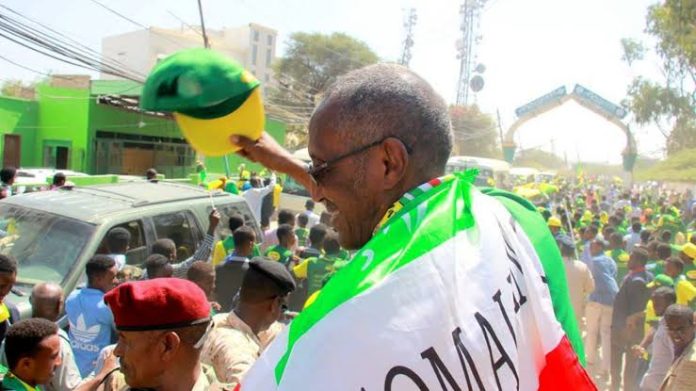Facebook Twitter (X) Instagram Somali Magazine - People's Magazine
Somaliland, a self-declared republic in the northwest of Somalia, is preparing for its presidential election this Wednesday amid a backdrop of heightened regional tensions in the Horn of Africa. Since its unilateral declaration of independence in 1991, Somaliland has managed to maintain a degree of peace and stability that contrasts with the rest of Somalia. Despite having its own currency, passports, and military, the region has yet to achieve international recognition.
The upcoming election will not only test Somaliland’s internal political landscape but will also spotlight its relationship with Somalia and Ethiopia amid a contentious diplomatic arrangement that could have wide-reaching effects on regional stability.
Somaliland Diplomatic Deal with Ethiopia Stirs Controversy
In January, President Muse Bihi Abdi signed a controversial memorandum with Ethiopia, offering a 20-kilometer Red Sea coastline lease in exchange for Ethiopian recognition of Somaliland. However, Ethiopia has not publicly confirmed these terms, leaving the details murky. This agreement has incited anger in Somalia, escalating tensions between the two nations and raising fears among international observers that the situation could destabilize the wider Horn of Africa.
Bihi’s handling of this agreement forms the cornerstone of his re-election campaign, though his opponents in the presidential race, Abdirahman Mohamed Abdullahi (“Irro”) and Faysal Ali Warabe, have largely refrained from openly challenging the deal.
Opposition Concerns Over Leadership and Economic Struggles
Abdirahman Mohamed Abdullahi, known as “Irro,” a former ambassador and long-time speaker of the Somaliland parliament, is challenging Bihi for the presidency. While offering few specific policy changes, Irro positions himself as a unifying figure in contrast to Bihi, whom critics accuse of divisive leadership and authoritarian tendencies. An opposition supporter, Hood Abdullahi Adan, expressed frustration, saying Somaliland has “gone backwards” under Bihi, citing rising inflation, hunger, and conflict.
The economic situation and peaceful stability rank high among the 1.2 million registered voters’ concerns. According to local lawyer and political analyst Guleid Ahmed Jama, Bihi’s “main agenda” centers on progress with the Ethiopian agreement, but many voters are more focused on day-to-day economic issues and social stability.
Political Divide and Clan Tensions in Somaliland
Critics argue that Bihi’s rule has intensified clan divisions, particularly following the violent loss of the Sool region to pro-Mogadishu forces in 2023. His administration also faced backlash over the two-year election delay in 2022, justified by “technical and financial reasons,” which led to protests that were met with forceful government suppression.
Despite ideological similarities between Somaliland’s main political parties, analysts highlight significant personality differences between the candidates. Jama noted that while the parties may align in their overall goals, the candidates’ differing personal approaches could be a deciding factor for voters.
A Region Watching Closely
As Somaliland heads to the polls, its election is being closely observed by regional and international players alike. The outcome could influence Somaliland’s pursuit of recognition, its internal unity, and its role in the politically charged Horn of Africa.

